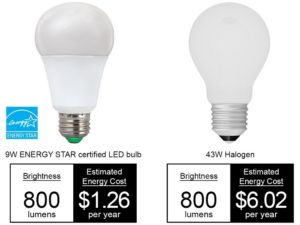FAQs
Plumbing
- Call Ideal – we’ll troubleshoot and identify the problem(s) with the gas system 619-583-7963
- Ideal will make the appropriate repairs, bring the gas system up to current code and safety standards, as required by local code enforcement.
- A permit must be obtained (by Ideal or by homeowner).
- Under most situations, an emergency inspection can be requested to facilitate a priority inspection. A responsible party other than Ideal, usually the homeowner, must be waiting on-site for the inspector to arrive. No exact time will be given – only the specified day and the hours between 9am and 3pm.
- Once the inspection has passed, the City Inspector needs to call SDG&E to release the meter. Ideal also needs to be contacted, and we’ll reconnect the gas meter and gas-fired appliances.
Please Note: be sure to have the City Building Inspector contact SDG&E to release the meter when he/she is on site, or you will not get your gas turned back on that day. - SDG&E will unlock the meter and restore gas, light pilots, and provide additional confirmation of gas system’s integrity. Occupant must wait for SDG&E to arrive to perform service.
- Standard water heater pan
- New main water shut off
- New gas shut off
- New gas supply line
- All brass unions
- All of our pipes are welded together - we do not use flexible connectors on the water lines, many times the flexible connectors leak down the road, causing water damage
- Blocking and strapping of water heater. The blocking goes between the water heater and the wall, making it more secure.
- We recycle your old water heater, and do not dispose of it in the dumpster.
- We use non-combustible water heater stands, where applicable.
- We check for proper water pressure and if there is a concern, we check for any “Thermal Expansion Conditions.”
It is possible you have a leak. For a thorough inspection, call Ideal Plumbing. Another way to check for leaks around your home is to check your water meter. The City of San Diego recommends:
“For leak detection, turn all water-using appliances off so that no water is being used anywhere in the house. Then check the position of the meter dial and wait. If after 15 minutes, the dials haven't moved, congratulations! You have a relatively water-tight home. But, if the dials have moved, start checking hose connections, faucets and the toilets for water leaks. If you have everything turned off and are sure the toilets and connections aren't leaking and yet the dials are still turning, you may have a hidden leak in an underground pipe. If you believe this is the case, you may need to call a plumber for assistance.”
Heating & Air Conditioning
Contractors and homeowners must now comply with state energy codes and Title 24. The 2008 Building Energy Efficiency Standards require testing of ducts after a central air conditioning or heating system is installed or replaced in most existing homes. The work of contractors is checked by third-party field verifiers (referred to as Home Energy Rating System [HERS] raters) who must be certified by the State of California and hold a certificate from CHEERS or Cal Certs. They will verify that:
- The equipment installed is the same as on the Manual J report.
- Duct leakage is less than, or equal to 10 %, per building code.
- Refrigerant charge test is required to ensure maximum performance of your new or repaired air conditioning system.
Electrical

Generally fuses and circuit breakers should not trip. Ground fault circuit interrupters (GFCI) are the exception, as they are susceptible to moisture or weather conditions. If this happens frequently, your electrical service panel may not be able to handle the electrical load demand of your home. You can check to see if certain appliances are plugged in that may be causing the problem. Frequent fuse or circuit breaker tripping may mean it’s time to upgrade your electrical service panel. Call Ideal for your free estimate.
GFCI (Ground Fault Circuit Interrupter) outlets have been required in new homes over 30 years. A GFCI constantly monitors an electrical circuit and protects us from receiving serious electrical shocks from faults in the electrical devices we use in our home. They should be installed in outlets near or subject to moisture, such as the bathroom, kitchen, laundry, garage, or outdoors.
If you have fluorescent lights, flickering may be a sign that the bulb or ballast will soon fail, or that the bulb is installed improperly. They may also flicker when your electrical service panel cannot handle the load of your appliances. Often times it is old or improperly installed wiring that is the cause of flickering lights in the home. This can be a fire hazard. Call Ideal Electrical services to troubleshoot your flickering lights 619-583-7963.
This is common when large air conditioning compressors/motors start. There is a small, brief drop in voltage as the unit kicks on. This should not cause any negative effects on your home’s electrical system.

 FREE Live Music and Family Fun at Allied Gardens First Fridays The next Allied Gardens First Fridays Summer Concert in the Park is just around the corner. Grab your lawn chairs, bring a picnic, and get ready to meet your
FREE Live Music and Family Fun at Allied Gardens First Fridays The next Allied Gardens First Fridays Summer Concert in the Park is just around the corner. Grab your lawn chairs, bring a picnic, and get ready to meet your  Ideal Plumbing Heating Air Electrical Named Winner of 2023 Better Business Bureau Torch Awards for Ethics in San Diego (San Diego, CA – September 15, 2023) Better Business Bureau Serving the Pacific Southwest (BBB) has named Ideal Plumbing Heating
Ideal Plumbing Heating Air Electrical Named Winner of 2023 Better Business Bureau Torch Awards for Ethics in San Diego (San Diego, CA – September 15, 2023) Better Business Bureau Serving the Pacific Southwest (BBB) has named Ideal Plumbing Heating